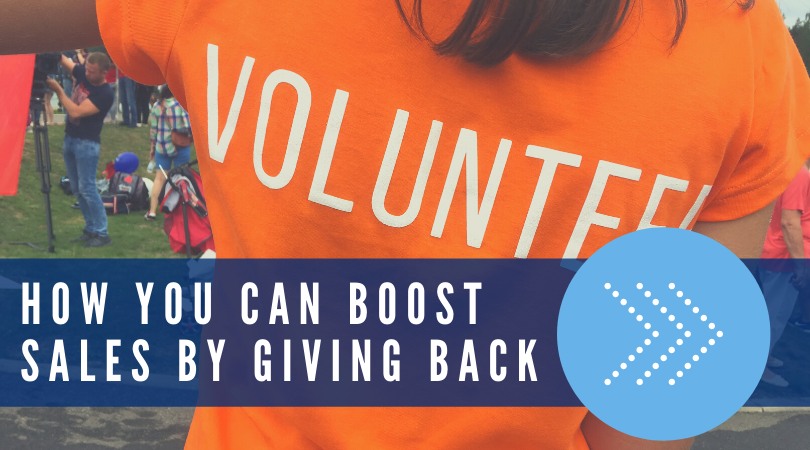3 Tips to help insurance agents balance their emotions during every day challenges and unsettling situations
Today could feel promising. But tomorrow could bring defeat. The next day might bring hopeful news; but the following may cause confusion. I don’t know about you, but this year has been a whirlwind of emotions for me – and it’s taken a toll.
Insurance agents are there for their clients during many of their worst moments – and that can be emotionally and physically taxing on its own. But add on everything else that is happening in the world right now, and no one would blame you for feeling overwhelmed, anxious, uneasy or moody.
It’s not only hard to be the best agent you can be when your emotions are all over the place – it can also make it harder to be the best partner, parent or friend. It can be easy to forget about yourself in your professional and personal life – but, as the saying goes, you can’t pour from an empty cup. Working to keep yourself “full” and your emotions in-check isn’t just an important part of self-care; it’s also beneficial to everyone around you.
If you’re not into talking about “feelings”, consider the physical symptoms that can emerge when your emotional health is out of balance, including chest pain, high blood pressure and ulcers. (And you certainly can’t help anyone if you end up in a hospital bed). Regardless of who you are and what you’re going through – finding balance with your emotions could help you take on today and life in general.
Here are 3 ways you can help balance your emotions:
1. Don't avoid your feelings
Sometimes it seems like the easiest way to handle unpleasant emotions is to avoid them all together. But Psychology Today says that awareness is the first step to achieving emotional balance – and that just because you’re avoiding your emotions doesn’t mean that they won’t impact you. In fact, the outcome could be worse.
To put it simply, we’re basically human pressure cookers. If you don’t let yourself experience pain (which, as unfortunate as it is, is an inherent part of life) then it will build and build and build. And when it finally finds a way to release itself, it might not be pretty.
Instead of holding your emotions in and letting them stew, Psychology Today recommends that you:
- Become aware of the emotions you’re feeling.
- See where your emotions manifest themselves. For example, fear might cause a knot in your stomach, whereas you might feel butterflies when you’re excited and nervous.
- Try to put those emotions into words like, “I am feeling excited for vacation and I’m also nervous for the plane ride.”
2. Be mindful
Mindfulness might seem like only something your Matcha-drinking, essential oil-wearing and yoga-practicing cousin is into – but it’s really something we should all embrace and it goes hand-in-hand with awareness. And if you’re not sold on the idea, check out this article from the Child Mind Institute that talks about how mindfulness is emerging as a way to help treat children and adolescents with ADHD, anxiety, depression and stress.
Mindfulness is available to any of us, all of the time – and it’s simply the human ability to be present in the current moment. The goal is to distance ourselves from thoughts (which could be inaccurate, disturbing or intrusive) and give ourselves time to evaluate the reality of a situation without judgement. However, that’s not always simple to do.
Here are a few ways to help bring mindfulness and balance to any moment:
- Take a few deep breaths. Try inhaling to the count of three and exhaling to the count of three.
- Think about one or two things that you are truly grateful for – no matter how small, they can help bring you into a more positive space.
- Use your senses. Think about what you’re seeing, tasting and smelling. Take a walk outside and truly appreciate your surroundings
3. Work on your self-esteem
According to Everyday Health, boosting your self-esteem can help you stay resilient, handle stress and tackle challenges. Self-esteem is your opinion about yourself – and having a low opinion about yourself can have truly negative impacts on your quality of life.
But many people only think of the stereotypical version of low self-esteem (like – ugh, my hair always looks bad) and don’t realize they’re experiencing it. Other causes for having a negative opinion about yourself (other than not liking your physical appearance) include critical parents, poor academic performance, ongoing stress, financial trouble, unhealthy relationships, chronic pain and mental illness.
While it’s not always possible to control your thoughts, there are a few things you can do to help improve your self-esteem:
- Get some exercise which releases endorphins and can provide you with a healthy coping mechanism for negative emotions.
- Eat a healthy diet including veggies, whole grains and lean protein.
- Take time to participate in activities you enjoy – and if you don’t have any hobbies, try something new.
- Be productive – even completing everyday tasks, like laundry, can help you feel more accomplished.
- Even though it may be hard, try to say connected socially and spend time with people who make you feel good about yourself.
- As shallow as it may seem, feeling better about yourself on the outside can make you feel better on the inside, so practice self-care like showering, dressing up and trimming your hair.
While I can only speak to my experience, I think the good news is that there are ways to help us overcome most stressors in life – you just need to figure out what healthy coping mechanisms work best for you. For me, it’s important to constantly reevaluate what’s effective and what’s not, because as I’ve grown and changed – what works best and fits best into my lifestyle has changed.
Since you probably already think that I’m the “crunchy granola type” – I’ll just go on the record and say that I kind of am. Yoga used to be my go-to stress reliever (I’m even a certified instructor) – but as my life got busier and busier, I’ve found that taking my dog for a walk or watching a rerun of Grey’s Anatomy does the trick, too! (And apparently, I’m not alone when it comes to watching nostalgic TV shows as a way to calm down – reruns of favorite shows are apparently a common way to relieve stress and have even been found to have real physiological benefits!)
What do you do to help ease your mind during unsettling situations? Let me know in the comments below!

Bri Cappella, Integrated Marketing Specialist
DISCLAIMER
The information contained in this blog post is intended for educational purposes only and is not intended to replace expert advice in connection with the topics presented. Glatfelter specifically disclaims any liability for any act or omission by any person or entity in connection with the preparation, use or implementation of plans, principles, concepts or information contained in this publication.
Glatfelter does not make any representation or warranty, expressed or implied, with respect to the results obtained by the use, adherence or implementation of the material contained in this publication. The implementation of the plans, principles, concepts or materials contained in this publication is not a guarantee that you will achieve a certain desired result. It is strongly recommended that you consult with a professional advisor, architect or other expert prior to the implementation of plans, principles, concepts or materials contained in this publication.
This blog post may contain the content of third parties and links to third party websites. Third party content and websites are owned and operated by an independent party over which Glatfelter has no control. Glatfelter makes no representation, warranty, or guarantee as to the accuracy, completeness, timeliness or reliability of any third party content. References to third party services, processes, products, or other information does not constitute or imply any endorsement, sponsorship or recommendation by Glatfelter, unless expressly stated otherwise.
Related posts
From natural disasters to crisis situations, community-focused organizations face unique and dangerous risks during their missions.
Learn to create a memorable client experience from the customer service experts at Trader Joe's.
Being able to remain positive in spite of everything you face could have some truly amazing impacts.








Submit a Comment